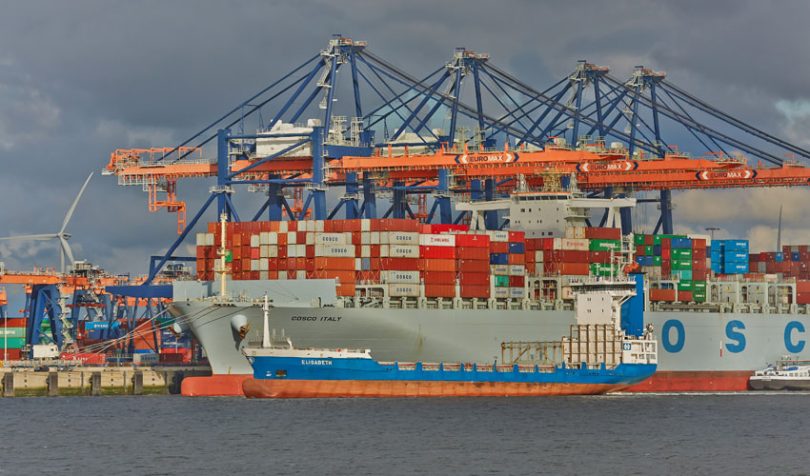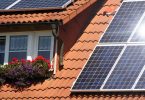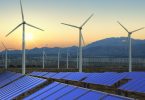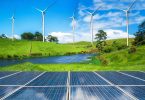Traditional grid-based electricity is starting to fragment with the addition of renewable energy sources. Around the Dutch Port of Rotterdam, there are wind turbines and solar panels that supply energy to the port. BlockLab which is part of the Port of Rotterdam is working with S&P Global Platts on a blockchain decentralized energy grid project.
The disadvantage of renewable energy sources is that they’re unreliable. So the two companies are creating a platform to coordinate supply and demand of energy. Typically this involves adjusting prices so that energy consumers reduce consumption during peak periods and perhaps store energy temporarily.
“You can’t simply switch the sun and wind on and off. This makes it difficult to make optimum use of these sustainable energy sources. What happens now is that wind farms are paid to shut down the wind turbines, simply because the grid operators cannot use all that power. In Europe and North America, we are losing billions through these kinds of inefficiencies”, explained Janjoost Jullens, BlockLab energy lead.
He continued: “With blockchain we can design such a trading platform safely and efficiently. Moreover, we can automate the trade by establishing smart contracts. Such a smart contract is a collection of logical rules that enables decision-making processes to be automated. For instance, the option of using energy automatically from a charged battery if the energy price exceeds a certain value.”
The project is substantially complete and blockchain combined with smart meters will be piloted at the Innovation Dock in Rotterdam in the coming months. But Jullens isn’t expecting a quick fix. “We see problems already being created in other locations because of congestion in the energy network. Problems that our solutions can help prevent. But it will be a few years before our solution is used on a large scale in the port.”
Decentralized grids proving popular
Decentralized energy is a common blockchain application with numerous tests in progress. One of the biggest movers in the sector is the Energy Web Foundation which recently hit a milestone of 100 affiliates. These include big names like German utility EnBW, Total, a subsidiary of the State Grid Corporation of China, Centrica, Duke Energy, Engie, e.on, equinor, GE, PG&E, SB Energy (SoftBank), Shell, Siemens, swisspower, and Tokyo’s TEPCO.
While some are using permissioned blockchains, energy is one area where public blockchain applications may prove more popular even for enterprises, because of the significant consumer or SME adoption as consumers and renewable providers.
Deliver
As previously reported, the BlockLab team is working on a logistics project with ABN Amro and Samsung called Deliver. The aim is to enable documents, data and other assets to move between separate blockchains. Six months ago that was between Samsung’s Nexledger and R3’s Corda.
Aljosja Beije, logistics lead at BlockLab noted that “whoever has the bill of lading, is the owner of the cargo. The owner of the bill of lading can use this as security in obtaining trade financing, but can of course only do this once.” But one of the objectives of trade finance platforms is to ensure sure it’s only used once. Double financing is not uncommon.
“With blockchain we can make documents such as the bill of lading really unique. We can play the role of civil-law notary, but also prove that there is just one copy of a document and from which source that document originates,” said Beije. “As civil-law notary we ensure [the document is] validated and thus reliable data. This creates unparalleled opportunities for automation and transactions and even new business models.”
The Port of Rotterdam is also a participant in the IBM/Maersk TradeLens project.






